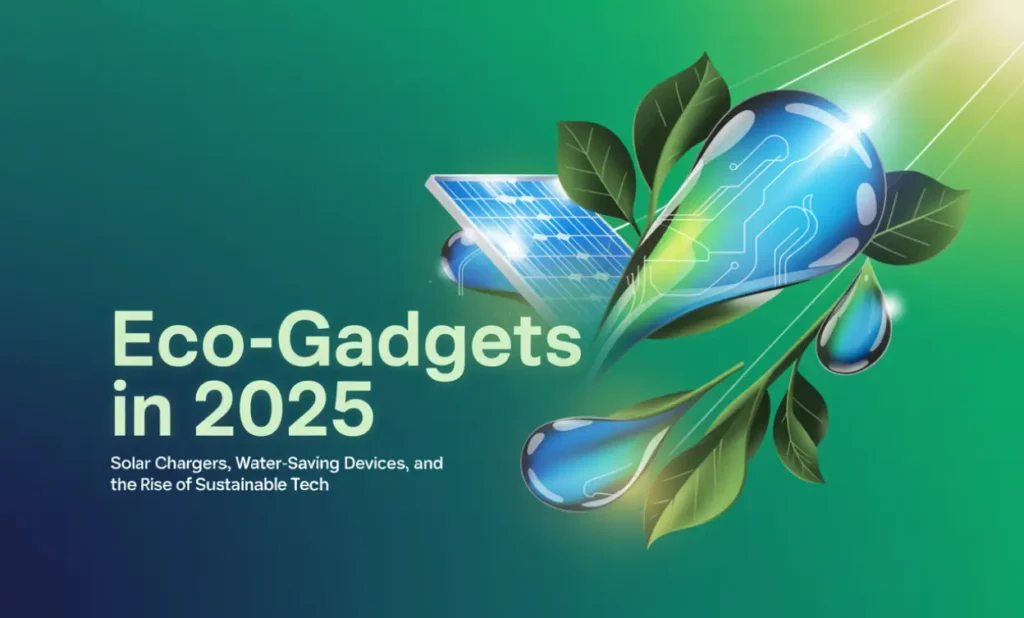
As we step into 2025, the eco-tech revolution is accelerating at an unprecedented pace. Sustainable technology is no longer a niche market but a global movement reshaping industries and lifestyles. From solar chargers to water-saving devices, the world is embracing a future driven by eco-friendly innovations. This article explores the cutting-edge gadgets that are defining sustainable living in 2025.
The Evolution of Solar Chargers: Powering Devices Sustainably
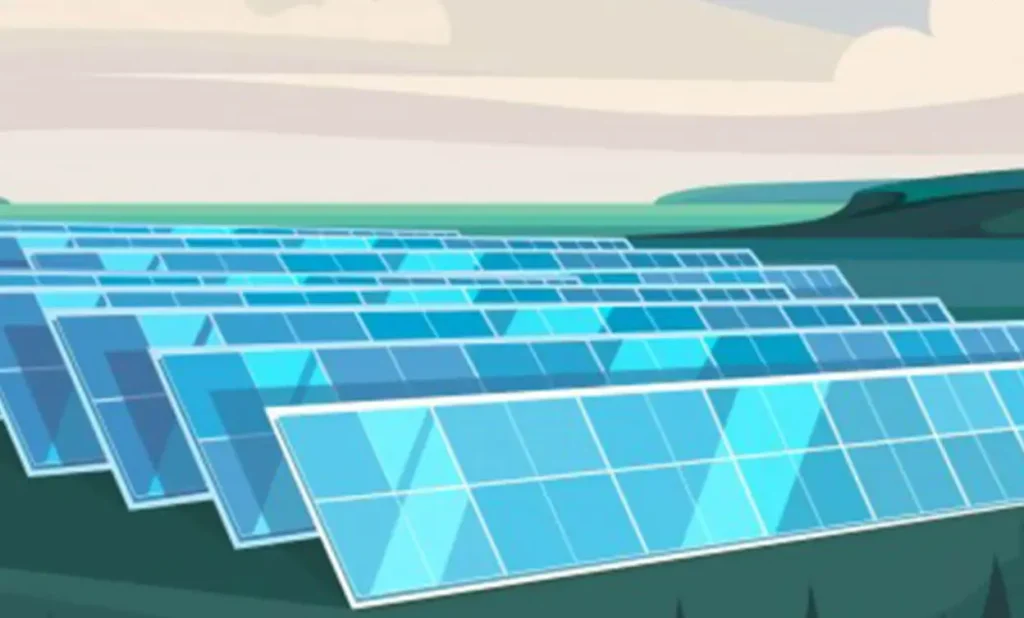
Solar chargers have transformed dramatically over the last decade. In 2025, we are witnessing next-generation solar chargers that are ultra-efficient, lightweight, and highly portable. These chargers now use monocrystalline solar panels with an efficiency rate exceeding 25%, ensuring fast charging even in low-light conditions.
One standout innovation is the foldable solar charger designed for outdoor enthusiasts. Equipped with USB-C fast-charging ports and wireless charging capabilities, these gadgets deliver clean energy directly to smartphones, tablets, and even laptops. Integrated smart tracking systems allow the panels to adjust their angle automatically, maximizing sun exposure throughout the day.
Additionally, solar backpacks are gaining popularity, integrating seamless photovoltaic cells into their fabric. These backpacks not only charge devices but also include energy storage systems that ensure power availability even after sunset.
Water-Saving Devices: Tackling Global Water Scarcity
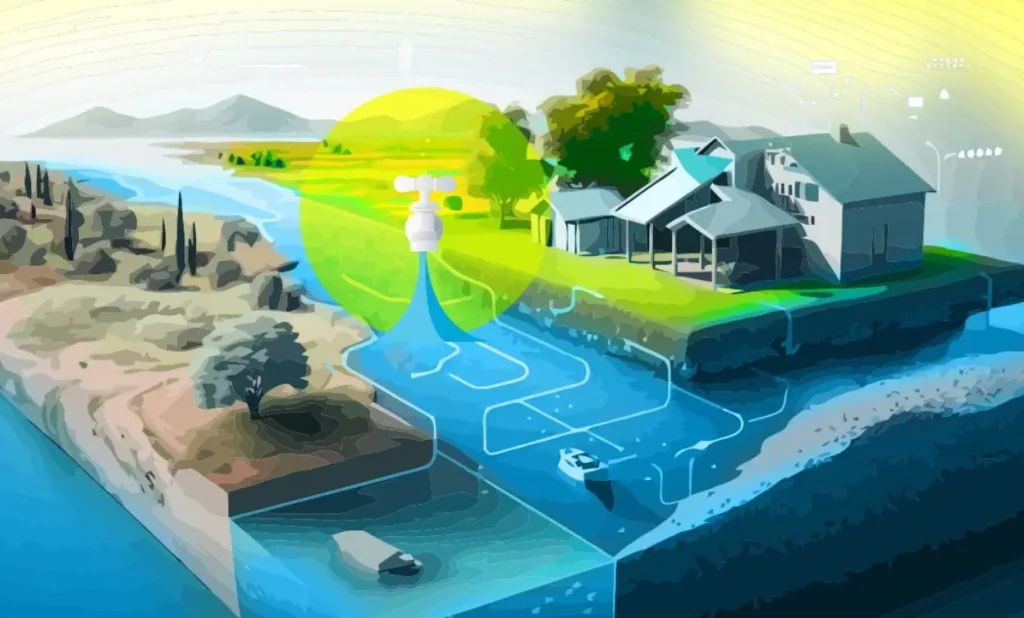
Water conservation has become a critical priority, and in 2025, a new wave of innovative water-saving devices is making significant strides in reducing wastage. Among the most impactful are smart showerheads that use sensors to regulate water flow based on user presence and temperature preference. These devices can cut water usage by up to 50% without compromising the quality of the shower experience.
Another groundbreaking development is the greywater recycling system for homes. Compact and easy to install, these systems capture water from sinks and showers, treat it, and redirect it for toilet flushing and garden irrigation. This closed-loop system not only conserves water but also reduces household utility bills significantly.
Moreover, leak detection sensors with AI-powered analytics are now mainstream. These sensors monitor plumbing networks in real-time and send instant alerts to homeowners upon detecting leaks, preventing massive water loss and property damage.
The Rise of Sustainable Tech: A Greener Digital Age
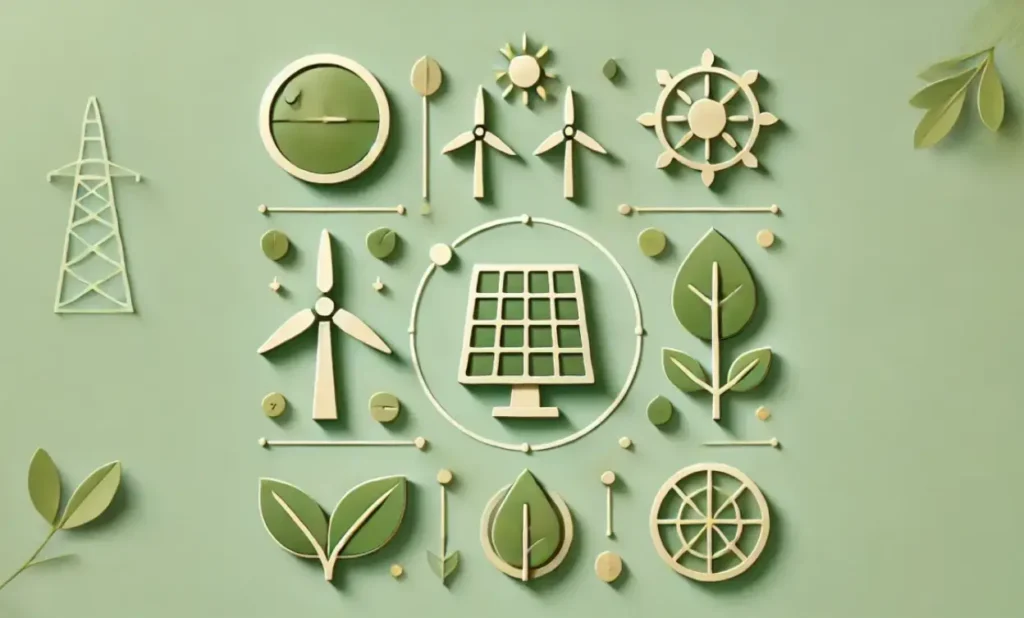
Sustainability in 2025 extends beyond gadgets into the digital realm. Eco-friendly smart home systems are at the forefront, integrating energy-efficient lighting, heating, and cooling solutions that learn user behavior to optimize resource consumption. The latest AI-driven thermostats adapt to weather forecasts and occupancy patterns, reducing energy waste and carbon emissions.
Another notable trend is the surge in biodegradable tech products. From phone cases to laptop components, manufacturers are now prioritizing materials that decompose naturally, minimizing environmental impact. Similarly, repairable and modular electronics are on the rise, allowing consumers to replace individual parts instead of discarding entire devices.
The popularity of green cloud computing has also skyrocketed. Data centers are being redesigned to run on 100% renewable energy, and innovative cooling systems are slashing electricity consumption, making digital operations cleaner than ever before.
Innovative Eco-Gadgets Shaping 2025
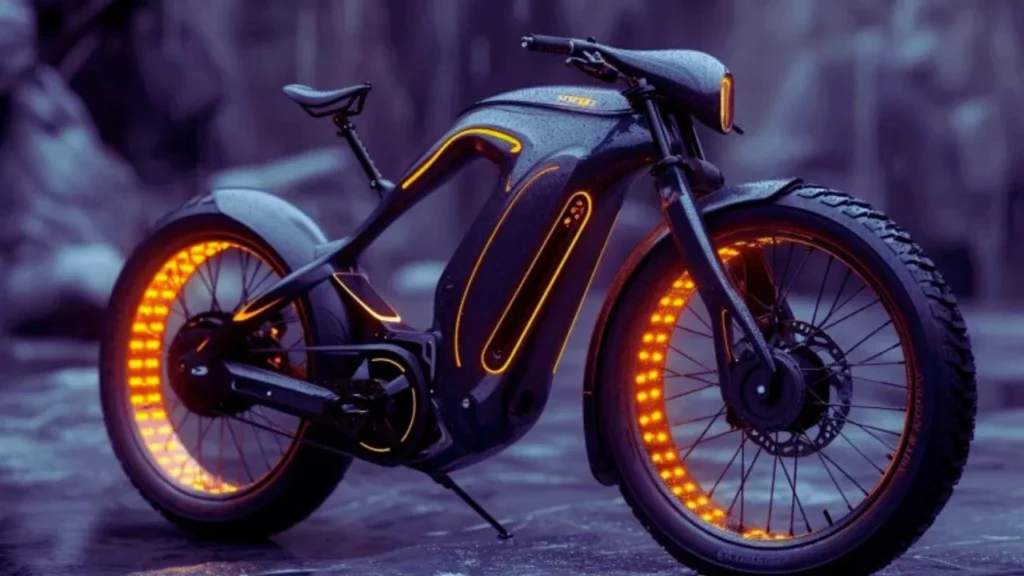
Here are some of the most innovative eco-gadgets of 2025 making waves:
- Solar-Powered E-Bikes: Combining electric mobility with solar energy, these bikes feature built-in solar panels that recharge batteries during rides and while parked.
- Air Purifying Plants with IoT Sensors: Houseplants embedded with smart sensors now monitor air quality, moisture levels, and even communicate with apps to optimize home environments.
- Wearable Solar Smartwatches: Fully solar-powered wearables that eliminate the need for charging cables entirely.
- Compostable Smart Kitchen Gadgets: Devices like blenders and food processors made from compostable materials, aligning with zero-waste goals.
- Energy Harvesting Tiles: Flooring systems that convert foot traffic into usable electrical energy for lighting and small appliances.
The Future of Eco-Gadgets: What’s Next?
Looking ahead, the trajectory of eco-friendly technology is set to ascend even further. Researchers are delving into nanotechnology-enhanced solar panels that promise record-breaking efficiencies. Water-from-air devices capable of extracting clean drinking water from atmospheric humidity are becoming more affordable and compact, potentially transforming lives in arid regions.
Moreover, the integration of blockchain technology for transparent carbon tracking is likely to empower consumers and companies to make informed, sustainable choices. As the eco-tech ecosystem expands, the convergence of AI, IoT, and renewable energy will redefine how we interact with and preserve our planet.
Final outlook
The year 2025 marks a pivotal moment in the journey toward a sustainable future. From solar chargers to water-saving innovations and beyond, eco-gadgets are not only enhancing convenience but also ensuring a healthier planet for generations to come. As we continue to embrace these technological advancements, every step counts in building a resilient, eco-conscious world.
